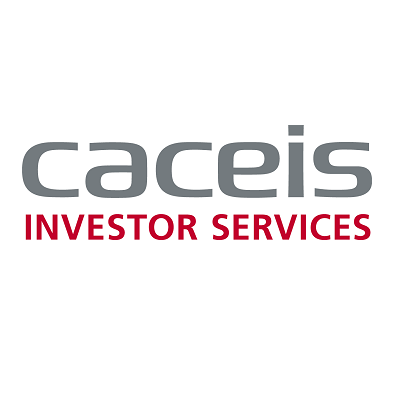Managing data is one of the major challenges facing the financial services industry at present. Fragmented, varying in quality and at times in very short supply, particularly with regard to ESG (Environmental, Social and Corporate Governance) data, financial and now non-financial information is the subject of great interest among European institutions and market players. Let’s take a look at the European Commission’s latest initiative, which is being closely monitored by CACEIS: the European Single Access Point (ESAP).
Background
Since September 2020 and the European Commission’s announcement of its intention – as part of the Capital Markets Union (CMU) action plan – to “set up an EU-wide platform (European Single Access Point) that provides investors with seamless access to financial and sustainability-related company information,”[1] the world of financial and non-financial information has been abuzz.
The European Single Access Point (ESAP) is now one of the most significant initiatives being led by European public authorities in the financial services sector. Resulting from overlapping objectives in terms of the digitisation of finance, compliance with the Union’s climate commitments under its Green Deal[2], and improving European companies’ competitiveness and transparency for investors, the ESAP platform responds to a number of challenges and is designed to counter a raft of weaknesses in the internal market in terms of data.
In the view of the European Commission, the internal data market is still burdened by a number of limitations, such as the fragmentation of information between various national and European databases, and the difficulties in accessing them due to the cost and quasi-monopoly of providers in the sector. In addition to these initial access-related issues, there are also operating challenges resulting from a lack of data standardisation at EU level, and the widespread use of PDFs. Finally, in terms of ESG, the European market is still largely immature, with a shortage of non-financial information due to high demand and largely insufficient supply.
As such, awareness of the EU data market’s structural weaknesses prompted the Commission to take action and consult, between 20 January and 12 March this year, European financial services players about what they think the ESAP should be.
As a major player in asset servicing, CACEIS chose to take part in this consultation, and closely monitored the Commission’s initial findings.
Why did CACEIS take part in the ESAP consultation?
The European “Transparency” directive (2004/109/EC) already requires industry players to disclose a broad range of financial information (annual reports, half-yearly reports, etc.).
In France for example, this information is centralised by the Directorate of Legal and Administrative Information on its website: info-financière.fr.
 It is therefore reasonable to question the necessity of this new platform. Won’t it merely double up existing national systems? Wouldn’t it be enough to duplicate this system by including non-financial information, without creating an entirely new platform?
It is therefore reasonable to question the necessity of this new platform. Won’t it merely double up existing national systems? Wouldn’t it be enough to duplicate this system by including non-financial information, without creating an entirely new platform?
Rodolphe Carissimo, Junior Advisor – Public Affairs at CACEIS, notes that, “the ESAP doesn’t require the disclosure of new information, nor does it modify content; it doesn’t impose any obligation on financial players to disclose any new information; rather, it is simply a new form of collection and processing for existing information.”
“This ambitious plan is of great interest to CACEIS, which requires reliable and high-quality information to provide services and reports to its clients,” explains Eliane Méziani, Senior Advisor – Public Affairs at CACEIS.
By centralising all information at the European level and by imposing common quality and format standards, the ESAP platform will enhance the quality and reliability of data. This will also help counter the current monopoly of data aggregators which, due to their dominant position on the financial data market, currently represent a major cost for CACEIS and all other players.
By fixing the current problem of fragmented financial and non-financial data, the ESAP will therefore be a valuable tool for CACEIS and its teams, and particularly the Market Data division directed by Florent Boucheron. It would help us drastically reduce costs (by around 10-20%) and invest in the development of our products.
CACEIS therefore wished to take part in the European Commission’s consultation in a working group led by Crédit Agricole, as part of the AFTI and its Market Data working group.
What can we take away from this consultation?
 The Commission published the results over the last few weeks. 183 companies participated in the consultation, giving rise to the following findings.
The Commission published the results over the last few weeks. 183 companies participated in the consultation, giving rise to the following findings.
CACEIS’ answers were broadly in line with those of the majority of respondents. “That said, our opinions differ when it comes to two specific matters: free access to ESAP data, and the voluntary nature of SME disclosures to the platform,” explains Eliane Méziani.
On the first point, while CACEIS believes users should have free access to the ESAP platform, a distinction should be made between those using the ESAP to comply with EU reporting obligations for their traditional services, and those using the ESAP for purely aggregative purposes, in order to compile external databases. We believe the first group should be granted free access, to comply with European provisions and as part of their normal operations, while the second group should be charged a database access and usage fee.
On the second point, CACEIS believes SMEs should be more extensively integrated into the ESAP, particularly with regard to non-financial data. Relying solely on the voluntary transmission of information from SMEs to ESAP seems ill-advised and even counterproductive for these entities, given that they would be the first to benefit from ESAP integration, which would increase their visibility amongst investors. Effectively managing this non-financial information will help strengthen their position in the financial ecosystem and facilitate relations with more established entities from which SMEs traditionally seek support. As such, CACEIS and Crédit Agricole Group’s position leans towards a clear inclusion of SMEs within the scope of the ESAP (for non-financial information) as part of a simplified framework, and subject to appropriate obligations.
On the other questions posed by the European authorities, CACEIS’ answers were in line with those of most other respondents. “On the question of the expected benefits of the ESAP platform, CACEIS and the Crédit Agricole Group believe this will be a step forward for our businesses, despite the cost of introducing this new tool,” explains Rodolphe Carissimo.
Like most respondents to the public consultation, CACEIS took a strong position on the quality requirements for information on the platform. Florent Boucheron, Group Market Data Manager, comments: “to ensure that the European financial ecosystem truly benefits from this initiative, the ESAP platform must provide access to high-quality information, based on a high level of confidence in the quality controls carried out by data providers, as is the standard.”
Finally, CACEIS also highlighted the need to include information covered by European legislation within the ESAP scope, such as the NFRD (now CSRD), the Benchmarks Regulation, the Sustainable Finance Disclosure Regulation (SFDR) and the EU Taxonomy.
In conclusion
The European Commission’s consultation on the ESAP platform provided an excellent opportunity for CACEIS to make its clients’ voices heard on the direction this future European initiative should take. The challenges presented by financial and now non-financial information are of vital importance, and the European Union, by establishing a data aggregation service comparable to the existing EDGAR platform (Electronic Data Gathering and Retrieval) in the United States, has made a firm commitment to providing a framework for the European data market in order to ensure its stability and efficiency, and to prevent any risk of market oligopoly.
“CACEIS intends to continue taking part in this new initiative by supporting the Commission’s work on the ESAP platform. This work is expected to result in the adoption of regulations governing the platform in the fourth quarter of 2021, slated for deployment by 2024,” confirms Eliane Méziani.
[1] https://eur-lex.europa.eu/legal-content/EN/TXT/?uri=COM:2020:590:FIN
[2] https://ec.europa.eu/info/strategy/priorities-2019-2024/european-green-deal_en



